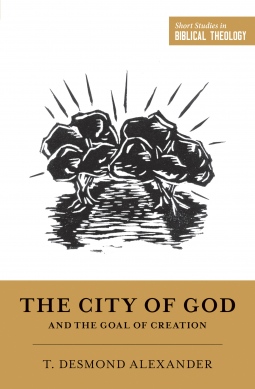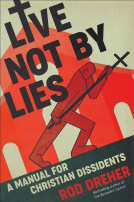
The City of God and the Goal of Creation
"An Introduction to the Biblical Theology of the City of God"
by
This title was previously available on NetGalley and is now archived.
Send NetGalley books directly to your Kindle or Kindle app
1
To read on a Kindle or Kindle app, please add kindle@netgalley.com as an approved email address to receive files in your Amazon account. Click here for step-by-step instructions.
2
Also find your Kindle email address within your Amazon account, and enter it here.
Pub Date Jan 31 2018 | Archive Date Jan 05 2018
Talking about this book? Use #TheCityOfGodAndTheGoalOfCreation #NetGalley. More hashtag tips!
Description
Linking the garden of Eden to the New Jerusalem, this volume traces the theme of city throughout Scripture—revealing God’s plan for his people in the great city to come.
Linking the garden of Eden to the New Jerusalem, this volume traces the theme of city throughout Scripture—revealing God’s plan for his people in the great city to come.
A Note From the Publisher
PDF may not be compatible with all reading devices.
Advance Praise
“Marked by T. Desmond Alexander’s typically careful scholarship and sound exegesis, The City of God and the Goal of Creation is a beautiful work of biblical theology that sets forth how the narrative of Scripture culminates with the New Jerusalem, where God’s people will enjoy a life of fellowship with God. Get this book for yourself and get it for others too.”
—Michael Morales, Professor of Biblical Studies, Greenville Presbyterian Theological Seminary; author, The Tabernacle Pre-Figured and Who Shall Ascend the Mountain of the Lord?; editor, Cult and Cosmos: Tilting toward a Temple-Centered Theology
“At a time when worldwide urbanization—the movement of people from country to city—is at full flood, many think of cities not only as centers of jobs, culture, and government, but as sinkholes of iniquity. This interesting book competently introduces us to the theme of city in the Bible, tracing out its trajectory through Scripture and its promise for the future, and takes us finally to the New Jerusalem from which sin and all its effects are forever banished.”
—D. A. Carson, Research Professor of New Testament, Trinity Evangelical Divinity School; Cofounder, The Gospel Coalition
“This fascinating short study provides a splendid overview of the Bible’s teaching on the city of God, tracing its early beginnings in the garden of Eden and following it all the way to its culmination in the New Jerusalem. This is biblical theology at its best. A magnificent study!”
—Andreas J. Köstenberger, Senior Research Professor of New Testament and Biblical Theology, Southeastern Baptist Theological Seminary; Founder, Biblical Foundations
“Readers are helped to grasp not only the significance of a key biblical topic but also how Scripture contains a coherent storyline and consistent message. Filled with numerous theological insights, this is a must-read for anyone looking for an informed and reliable discussion.”
—Paul Williamson, Lecturer in Old Testament, Moore Theological College, Sydney, Australia; author, Sealed with an Oath and Death and the Afterlife
“New believers trying to make sense of Scripture for the first time, as well as believers who have studied the Bible for decades, will find insight and encouragement in these pages. The City of God and the Goal of Creation is a feast for those who love the Word of God.”
—Keith A. Mathison, Professor of Systematic Theology, Reformation Bible College
“Alexander has achieved something marvelous here: many who study the big picture are skimpy on the details, while many who focus on the details miss out on the big picture—but here we have someone knowledgeable, thoughtful, judicious, and persuasive on the details and the big storyline.”
—C. John Collins, Professor of Old Testament, Covenant Theological Seminary; author, Did Adam and Eve Really Exist?; Old Testament editor, ESV Study Bible
“This book brings together an astonishing number of Bible passages into a clear and coherent overview of the great narrative of the Bible.”
—Douglas J. Moo, Kenneth T. Wessner Chair of Biblical Studies, Wheaton College; Chair, Committee on Bible Translation for the NIV
“The city of God is a central biblical theme, and T. Desmond Alexander masterfully guides us as he follows the theme from Genesis to Revelation. His study is a marvelous demonstration of the organic coherence of the Bible’s message. I enthusiastically recommend this book to all Christians.”
—Tremper Longman III, Distinguished Scholar of Biblical Studies, Westmont College
“I love this book! It may be short, but it packs a big punch. It is a book to savor—small in size, but bursting with biblical insights.”
—Jason Meyer, Pastor for Preaching and Vision, Bethlehem Baptist Church, Minneapolis, Minnesota
“Despite the depressing state of the world, T. Desmond Alexander’s biblical theology of Jerusalem provides a biblical basis for hope for the future. This is an irenic, fair, and easily accessible study of Jerusalem, the city of God.”
—Michael Rydelnik, Professor of Jewish Studies and Bible, Moody Bible Institute; Host and Bible Teacher, Open Line with Dr. Michael Rydelnik, Moody Radio
“We are seeking the city that is to come, and there is no one I would rather read on the topic than T. Desmond Alexander. Read this book, then buy a stack of copies to give away.”
—James M. Hamilton Jr., Professor of Biblical Theology, The Southern Baptist Theological Seminary; author, God’s Glory in Salvation through Judgment
Available Editions
| EDITION | Other Format |
| ISBN | 9781433555749 |
| PRICE | $17.99 (USD) |
Featured Reviews
 Jeanie S, Reviewer
Jeanie S, Reviewer
For those who are united to Jesus Christ, eternal life begins here and now, as does citizenship of the city that will one day be created by God on a renewed earth. Jesus challenges his followers to look forward in faith, to pray and work for the spread of God's rule here and now. They are to exercise true humility, remembering that they have been redeemed from evil only by the grace of God and not by their own achievements or piety. They are to witness to an alternative worldview that promotes belief in a Creator God, highlighting the inadequacy of a purely materialistic view of human existence. They are to be peacemakers, reconciling those who are alienated, especially from God. They are to make disciples of Jesus Christ extending God's kingdom throughout the world through self-sacrificial love.
There is a question we must ask. What kingdom are we building? If we are building are own kingdom, we are likened by the City of Babylon. What this text does it teaches on the significance of Babylon and the contrast of building the Kingdom of God.
It always starts at the beginning. God's original creation plan - to live with his creation. Not for his need but for his enjoyment and our good. Looking at cities, we see not only the what but the why.
Chapter 1 The Godless City
Chapter 2 The Temple City
Chapter 3 The Holy Mountain City
Chapter 4 The Royal City
Chapter 5 Envisaging a Transformed Jerusalem
Chapter 6 Hope for Jerusalem Beyond Divine Judgment
Chapter 7 Seeking the City that is to Come
Chapter 8 Anticipating New Jerusalem
Each of these chapters reflect our need for God first by reflecting a Godless city. What is worship and what is rule. All this transforms the heart of believers to sacrificial love and mercy. Not a pie in the sky ideal but a defeat of evil that testifies to God's mercy and love.
A unique bible study.
A Special Thank You to Crossway Publishing and Netgalley for the ARC and the opportunity to post an honest review
 Jimmy L, Reviewer
Jimmy L, Reviewer
This is the third book I read from the “Short Studies in Biblical Theology” series published by Crossway. I have immensely enjoyed the other two volumes that I read from this series (see Review: Work and Our Labor in the Lord and Review: Marriage and the Mystery of the Gospel) and this work is no different. This present work explores the theme of “the city of God” in the Bible, namely Jerusalem but it also explores the city of God in light of its antithesis: The City of Man, namely Babylon. This is an excellent work on a biblical theology that gives us a biblical “tale of two cities” stretching from Genesis to Revelation that is at once exciting, edifying and relevant since these two cities are capitals of two groups of people in this world with one under God and the other in rebellion against God. If you think you know the Word of God and yet you are unable to see a unifying theme from Genesis to Revelation in the Bible you would find this book very helpful. Even for readers who have a deeper grasp of biblical theology would enjoy this work.
The author T. Desmond Alexander have written a lengthier treatment of the topic found in this book in an earlier work he wrote titled From Eden to the New Jerusalem. What I love about this particular recent work The City of God and the Goal of Creation is its brevity compared to the first book and also for its easy access for the general Christian reading audience. Yet its accessibility for the general Christian reading public does not mean it is not biblically deep. On the contrary there is a lot that even older Christians familiar with their Bibles will learn from what the author presents.
The book is divided up into eight chapters. The first chapter is on Babel/Babylon and is titled “The Godless City.” Transitioning to the City of God the second chapter is on “The Temple-City” while chapter three is “The Holy Mountain City” followed by chapters titled “The Royal City,” “Envisaging a Transformed Jerusalem,” “Hope for Jerusalem Beyond Divine Judgement” and “Seeking the City That is to Come.” Chapters one through seven is focused on the Old Testament while chapter 8 as the last chapter in the book is focused on the New Testament data of both the City of Man and the City of God. Chapter eight is divided into four parts with the first being on the church as God’s Spiritual Temple, the second part on the New Testament negative portrayal of Jerusalem, the third part on Christians as citizens of a heavenly city and finally the fourth part is on how the bodily resurrection of Christians is necessary to live in the New Jerusalem.
Personally there were so many things that I learned from the book that I won’t be able to share them all in this review. Though the book comes in at 190 pages it seems the insights, amazing truths and facts are highly concentrated with the book’s pages. Some of the things I learned include:
The similarities between the Garden of Eden and God’s sacred Sanctuaries. It is isn’t just that Eden is like God’s sanctuaries which I have picked up from reading other works of theology but as the author pointed out the tabernacle itself also mimic Eden such as the Menorah resembling the hape of a tree, like the Tree of Life in Genesis.
Babel in the Hebrew appears over two hundred times in the Old Testament and is always translated as “Babylon” in the English except for the narrative in Genesis 11 of the Tower of Babel. There are biblically strong reasons to understand the Tower of Babel as being Babylon. This truth is amazing to consider when one think that Babylon as the city of Man stretches so far back.
The author T. Desmond Alexander convincingly argues that the reason why the Hebrews did not treat Mount Sinai as an important location of worship for the Hebrews is because God’s design of the Tabernacle was meant to be a “mobile Sinai.” The parallels Alexander noted is far too much to be merely coincidental.
The book explore the multifaceted aspect to the “City of God” with how the themes of God’s “Holy Mountain”/Zion, a Royal Davidic City, the Temple and the Tabernacle overlaps biblically and “bleed” into each aspects.
Both the pre-exilic and post-exilic Prophets in the Bible predicts a future transformed Jerusalem.
The conflict between Babylon and Jerusalem would climax in the New Testament with the book of Revelation. I thought the author did a good job noting the contrasts between the two cities. For instance both cities are portrayed as women but whereas Babylon is described as a great prostitute in Revelation 17:1-5 Jerusalem on the other hand is described as the Bride of the Lamb in Revelation 21:9-10. As a prostitute Babylon has jewelry according to Revelation 17:4 which functions as a foil to Jerusalem who is dressed in bright and clean linen in Revelation 19:8 symbolizing purity.
Obviously there are more things one will learn than what is summarized above. As a constructive criticism I do think the author in dealing with the New Testament data falsely operate under the hermeneutical principle that expansion of fuller details with Jerusalem somehow man there is no longer a role of literal Jerusalem. For instance in seeing the Bible’s teaching that the Church is now a Holy Temple of God according to Ephesians 2:19-22 that does not mean there is no role of a literal Jerusalem in the future. Also I wished the author could have spent more time with the passages in Revelation concerning the two different cities. Overall though the constructive criticism does not take away the 5 out of 5 rating this book deserves.
NOTE: This book was provided to me free by Crossway and Net Galley without any obligation for a positive review. All opinions offered above are mine unless otherwise stated or implied.









